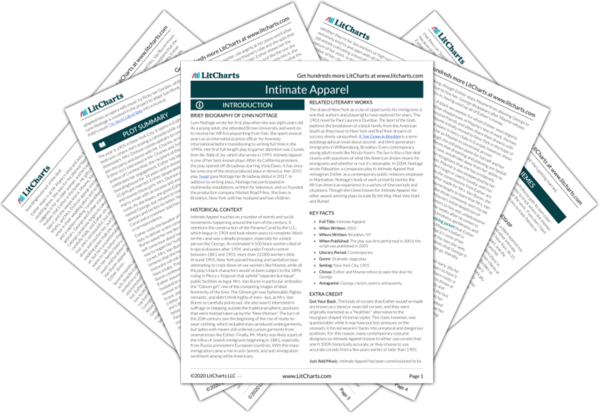Saying that her opinion doesn't matter is a veiled way of Mrs. Van Buren saying that society's opinion
does matter. This construction allows Mrs. Van Buren to feel even more like a victim in her own life and not recognize that, were she to choose to use it, she could have far more agency than she might think to make change. With this, the play starts to hint at the possibility that though Esther may want to marry, being single and having an income may make her far more successful and allow her to be happy in a way that marriage might not.


